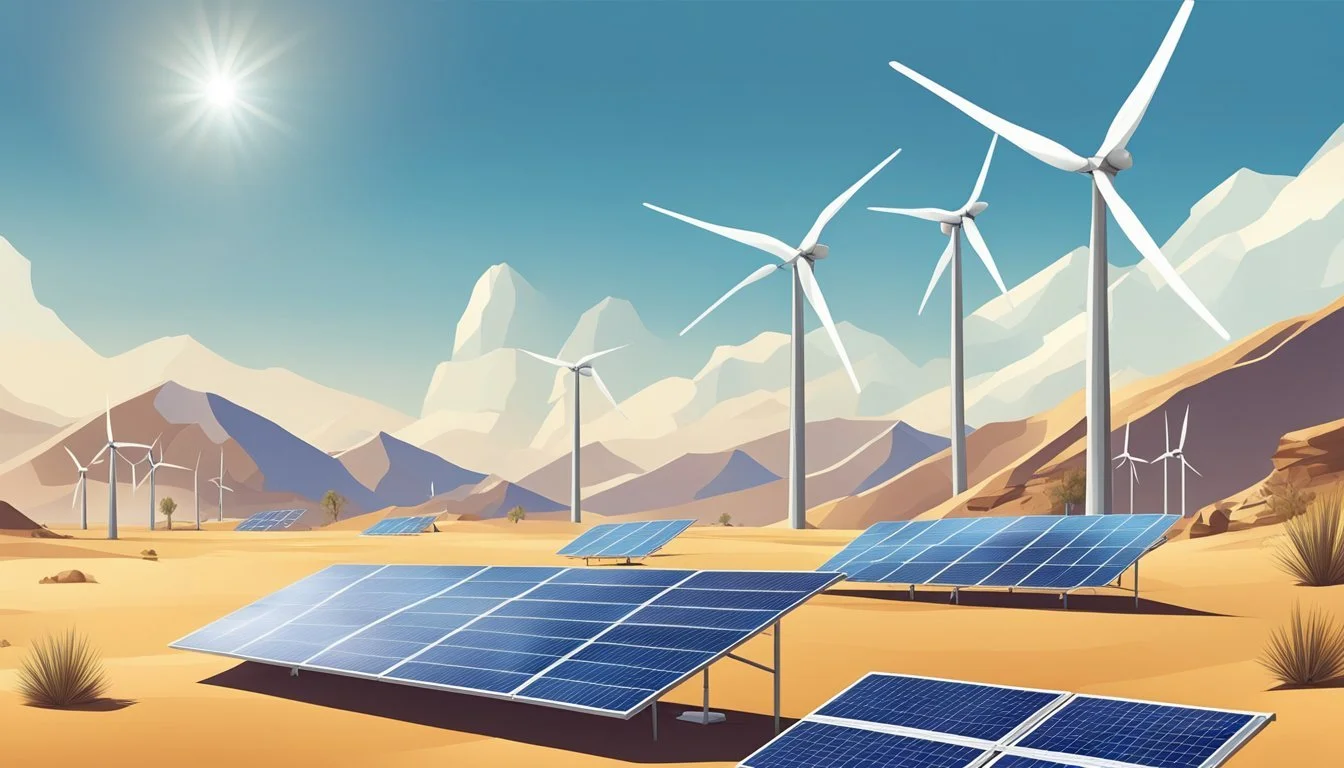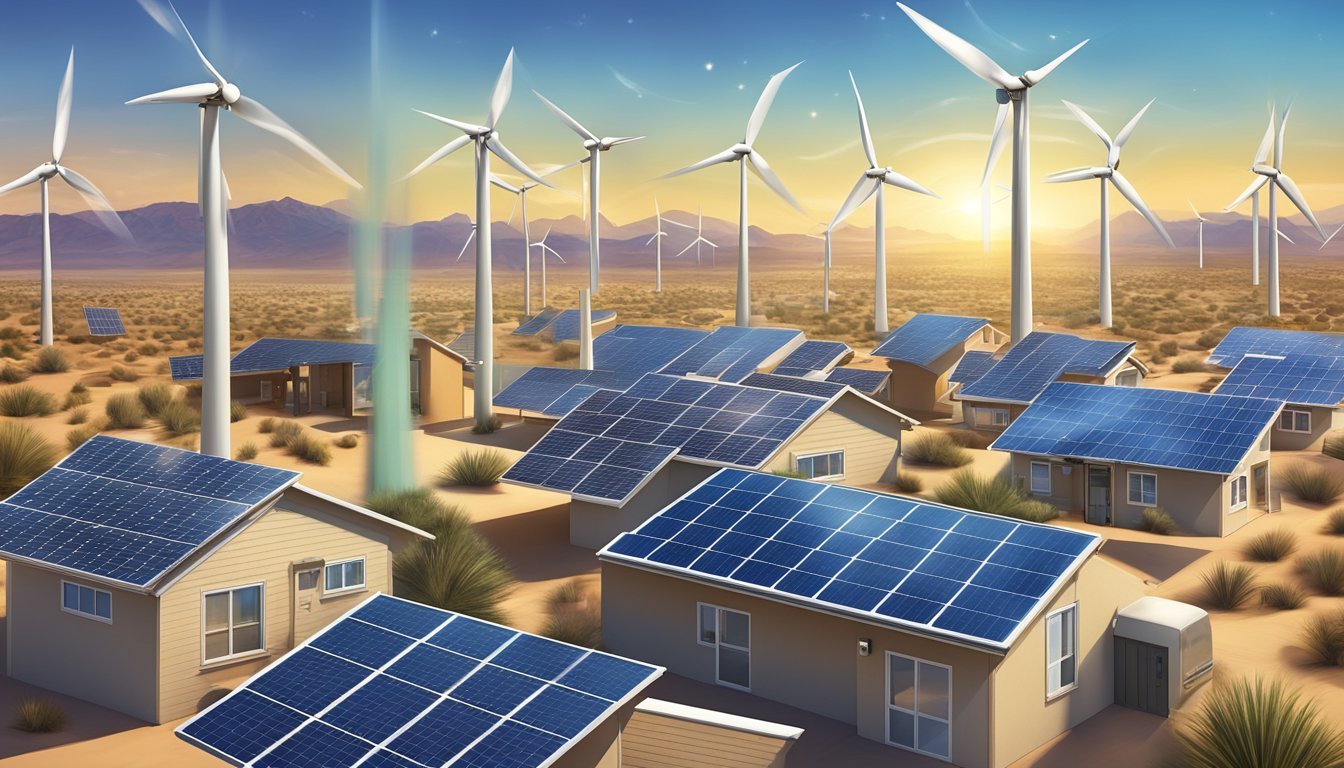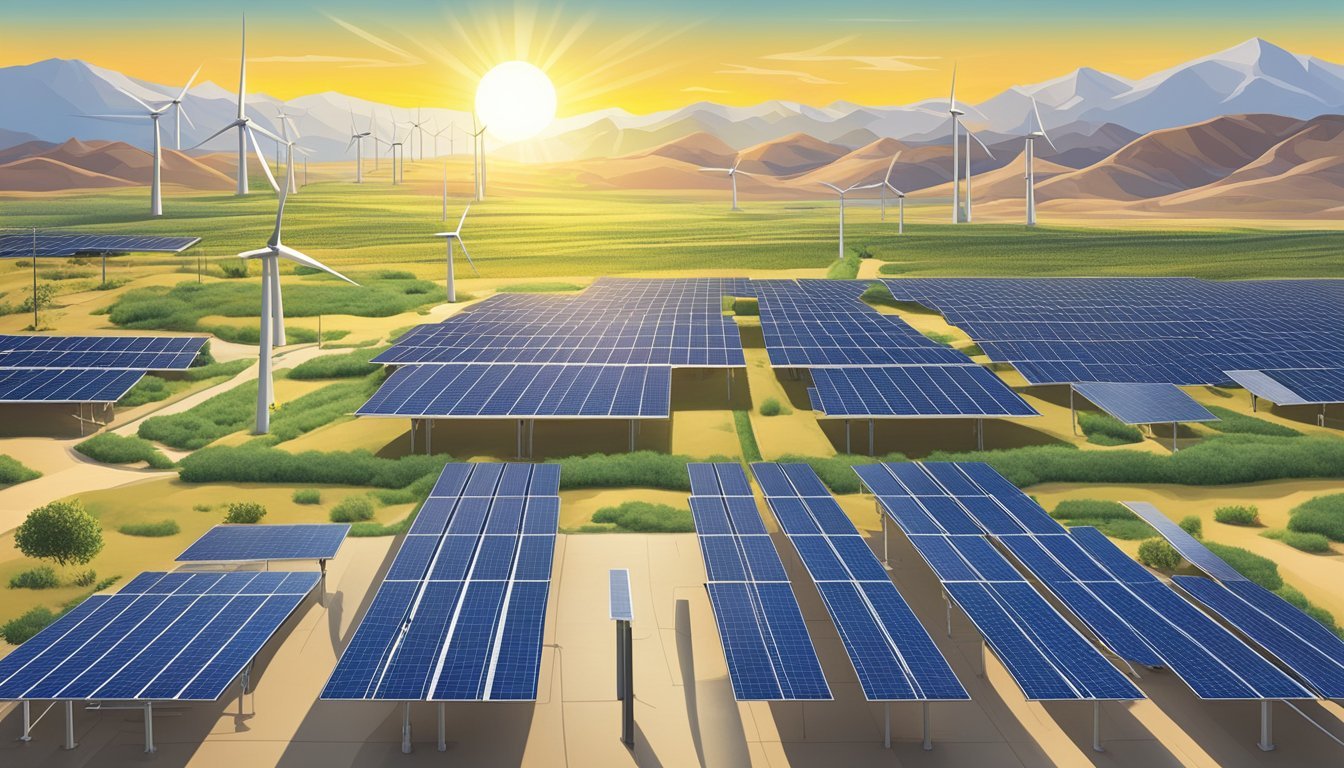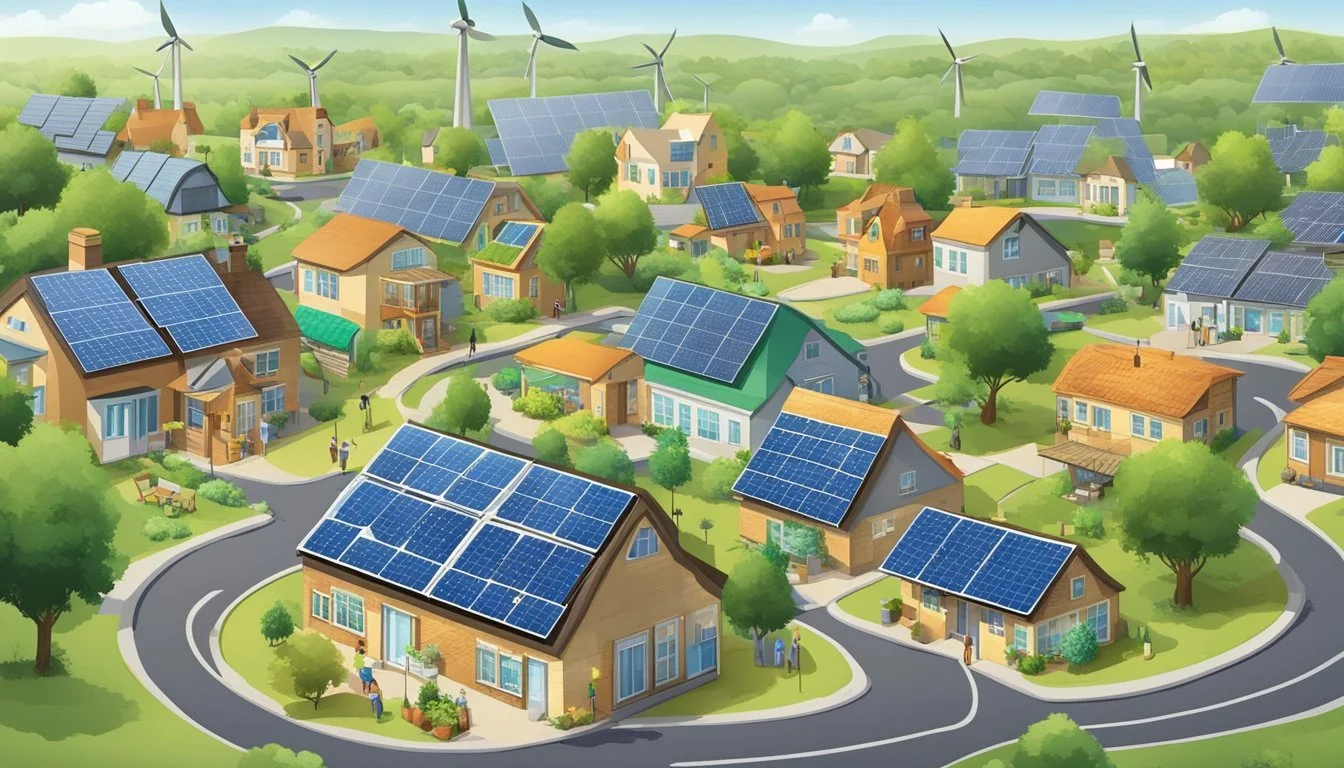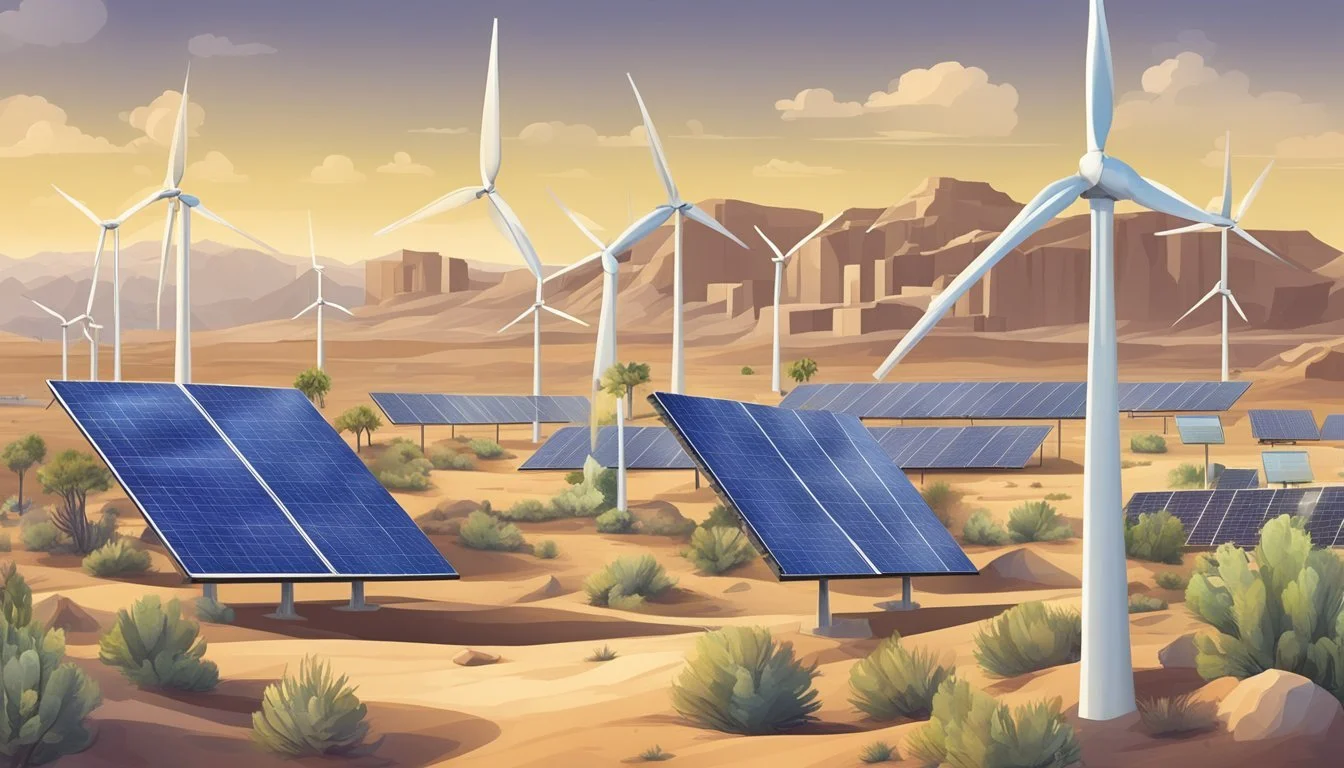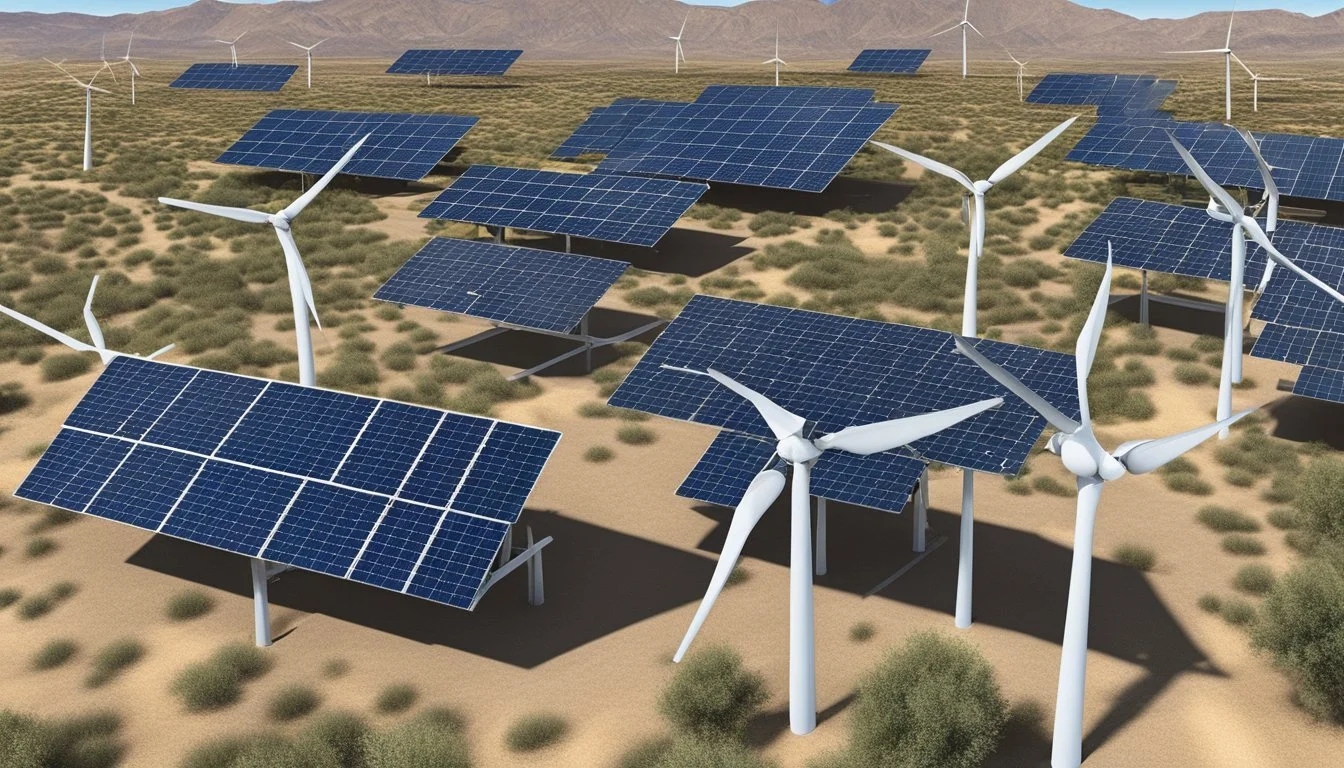Incentives for Renewable Energy and Conservation in Nevada
Benefits and Opportunities
Nevada stands at the forefront of the renewable energy revolution with a comprehensive suite of incentives designed to spur development and adoption in the sector. As home to abundant solar, geothermal, and wind resources, the state has positioned itself as a hub for clean energy projects, striving not only to meet its own energy demands sustainably but also to set a precedent for the rest of the nation. Through initiatives such as the Nevada Clean Energy Fund, the state works actively to finance qualified clean energy projects which aim to bolster the economy by creating long-term, high-paying jobs in the sector, while promoting the standard of living through more affordable and efficient clean energy solutions.
The state's commitment extends beyond energy production, addressing the full spectrum of environmental conservation and climate action. Policies facilitated by The Nature Conservancy in Nevada foster investments and offer incentives for a range of technologies that deliver clean electricity, reduce industrial pollution, and enhance the use of clean transportation options. Additionally, significant efforts focus on leveraging the state's natural landscapes for carbon storage, thereby tackling climate change on multiple fronts.
Nevada's supportive legislative framework, namely incentives like property tax abatements encapsulated in recent bills such as S.B. 448, encourages businesses to establish and expand their renewable energy operations within the state. These incentives cover not only electricity generation but also the incorporation of energy storage systems, further solidifying the state’s pathway toward a resilient and sustainable energy infrastructure.
Overview of Nevada’s Renewable Energy Landscape
Nevada is stepping forward as a leader in clean energy, leveraging its vast solar and other renewable resources to address climate change and advance energy policies.
The State of Renewable Energy in Nevada
Nevada's commitment to renewable energy is demonstrated by initiatives such as Greenlink Nevada, which is crucial for increasing renewable energy connectivity. With renewable energy standards in place, such as the goal to achieve 50 percent renewable energy generation by 2030, the state is on a trajectory to lessen its carbon footprint and foster a sustainable energy future. The progress is propelled by significant investments in renewable sources, counting both solar and geothermal.
Climate Change Impact and Energy Policies
The urgency of combatting climate change has prompted Nevada to adopt robust regulatory policies. Nevada's Renewable Portfolio Standard (RPS) mandates that providers must source a certain percentage of electricity from renewable sources, a policy that is pivotal in guiding the state towards a greener grid. Together with the Renewable Energy Tax Abatement program, which has added considerable renewable capacity, these policies underscore Nevada's proactive stance on climate action and clean energy development.
Incentive Programs for Renewable Energy
Nevada offers a diverse range of incentive programs that financially support individuals and organizations in their transition toward renewable energy sources. These programs are designed to lower the cost and increase the adoption of clean energy through various incentives.
Solar Incentives and Rebates
Nevada's Solar Energy Systems Incentive Program provides rebates for residential and commercial solar installations. The program encourages the adoption of solar energy by offsetting a portion of the installation costs. Homeowners who install solar panels can benefit from immediate energy savings and potential increases in property value.
Federal and State Tax Credits
Tax incentives are significant for renewable energy investment in Nevada. The Residential Energy Credit allows homeowners to claim a percentage of the cost of solar photovoltaic systems. Additionally, the Investment Tax Credit (ITC), available at both the federal and state levels, reduces tax liabilities for individuals and businesses investing in renewable energy.
Financing and Investment Opportunities
Nevada residents can explore various financing programs aiming to make renewable energy projects more affordable. Entities such as the Department of Energy offer resources on how to find local financing options. They also provide information on federal incentives like the Modified Accelerated Cost-Recovery System (MACRS), which accelerates depreciation deductions for renewable energy investments, improving the economics of such projects.
Advancements in Energy Efficiency
Nevada is steadily progressing in energy efficiency, leveraging programs and advanced technologies that underscore its commitment to reducing energy costs and promoting sustainability.
Energy Efficiency Measures and Programs
Nevada has adopted a variety of energy efficiency measures, many supported by incentives to encourage adoption. The State Energy Program (SEP) Formula grant is a prime example, aimed at supporting state efforts to foster energy conservation. Meanwhile, homeowners and businesses benefit from various programs, including rebates, tax credits, and financing programs, to implement energy-saving measures. These incentives not only improve energy usage but also help to manage and reduce energy costs long-term.
Residential Programs: Homeowners can take advantage of the Home Energy Rebates Programs including those from the Inflation Reduction Act, which supports clean energy initiatives.
Business and Industrial Incentives: Companies are encouraged to invest in energy-efficient technologies via RDD&D grants and contracts, potentially lowering operating expenses and increasing competitiveness.
Energy Storage Systems
Energy storage plays a pivotal role in Nevada's shift towards a more efficient energy landscape. These systems enable the state to harness renewable energy more effectively, storing excess power during peak production times and distributing it as needed. It bolsters the reliability of renewable resources, which are inherently intermittent, and reduces dependency on traditional power sources.
Technological Integration: Advanced batteries and other storage technologies are integrating into Nevada's power grid, safeguarding against outages and promoting a more resilient infrastructure.
Cost Savings: By enhancing the ability to store energy, Nevada aims to stabilize energy costs for consumers and reduce the financial unpredictability associated with non-renewable energy sources.
Solar Energy Specific Initiatives
Nevada supports robust initiatives to harness its abundant solar resources, offering incentives for the adoption of solar energy technologies in both residential and commercial sectors.
Residential and Commercial Solar Programs
Nevada provides significant incentives to encourage the installation of solar panels. Homeowners and businesses may benefit from financial assistance and tax rebates that make solar installation more affordable. The Nevada Solar Incentives, Tax Credits, And Rebates program of 2024 outlines these opportunities, including potential savings on initial solar system costs.
Net Metering and Solar Panel Usage
Net metering is a critical component of Nevada's solar energy landscape. It allows users to gain credit for the surplus energy their solar panels generate and return to the grid, effectively reducing their utility bills. Through policies aimed at maximizing the utilization of generated solar power, Nevada continues to promote the expansion of solar energy to meet both residential and commercial power needs.
Community and Economic Impact
The transition to renewable energy in Nevada is catalyzing community benefits and economic growth, particularly through job creation and investment in local infrastructure.
Clean Energy Projects and Community Benefits
Communities and schools in Nevada are gaining direct advantages from the implementation of clean energy projects. The Lower Income Solar Energy Program (LISEP) represents a partnership with NV Energy aimed at deploying solar photovoltaic systems, benefitting both major population centers and rural communities. This initiative supports not only energy independence but also educational opportunities, as schools can potentially lower their energy costs and apply savings to educational programs and improvements.
Socioeconomic Growth Through Clean Energy Jobs
Employment in Nevada is seeing a positive impact due to clean energy policies and incentives. With the federal clean power incentives propelling approximately 7,400 jobs, the state's economy could see an additional $432 million in yearly contributions, reinforcing a higher standard of living. The Nevada Clean Energy Fund is focused on financing qualified clean energy projects, heralding in a new era of long-term jobs that promise stability and competitive wages in the energy sector. These roles are not just transient; they represent enduring careers that can support families and communities for the long haul.
Government Support and Regulatory Framework
In Nevada, government support plays a pivotal role in advancing renewable energy and energy conservation, with policies and initiatives established at the state level providing a favorable landscape for growth. The region benefits from a regulatory framework designed to incentivize sustainable energy development.
Nevada Clean Energy Fund (NCEF)
The Nevada Clean Energy Fund (NCEF), a nonprofit corporation, aims to increase the deployment of renewable energy and energy efficiency technologies across Nevada. It does so by attracting investment, facilitating financing opportunities, and connecting stakeholders in the clean energy market. The NCEF works closely with NV Energy and the state to ensure the alignment of clean energy projects with the broader goals of sustainability and economic development.
Regulatory Environment and Government Initiatives
The Regulatory Environment in Nevada is governed by a set of comprehensive regulations and policies that are overseen by the Public Utilities Commission of Nevada (PUCN). The commission ensures that regulations pertaining to renewable energy align with the state's objectives of increasing energy independence and reducing greenhouse gas emissions. Notable government initiatives include the Renewable Portfolio Standard, which mandates that a certain percentage of NV Energy's electricity should come from renewable sources, thereby promoting the adoption of renewables in the energy mix. These initiatives actively encourage investment and development in solar, wind, and geothermal energy resources across the state.
Technical and Financial Resources
Nevada's commitment to renewable energy and conservation is supported by various technical and financial resources. These resources aid implementation, funding, risk management, and deliver essential data for performance analysis.
Support for Implementation and Funding
They provide Technical Assistance to local businesses, communities, and tribal entities to foster clean energy projects. The Nevada Clean Energy Fund, for instance, aims to finance qualified clean energy initiatives significantly. It increases the amount of available funding, thereby promoting the execution of projects with long-term, high-paying jobs. Financing options are fortified by initiatives like the Greenlink Nevada, which is an expansive plan to boost the state's renewable infrastructure.
Risk Management and Performance Data
To ensure the viability and success of renewable energy projects, Nevada employs robust Underwriting Standards. These are protocols established to evaluate and mitigate financial risks. Moreover, Measurement and Verification Protocols are in place, providing a systematic approach to collect data and analyze the performance of energy projects. Data extracted corroborates the effectiveness of energy initiatives, like the statewide Electric Highway aimed at widespread electric vehicle charging infrastructure.
Future of Renewable Energy in Nevada
Nevada is rapidly advancing towards a cleaner future, with ambitious renewable energy targets and a burgeoning market for cutting-edge technologies that promise to revolutionize the state’s energy systems.
Renewable Energy Goals and Milestones
Nevada's Renewable Portfolio Standard (RPS) mandates that 50% of the state's energy come from renewable sources by the year 2030. This objective positions Nevada as a leader in renewable energy policy, striving for a transition that not only impacts energy production but also stimulates economic growth with substantial investments into the sector. The state has already made remarkable progress, with NV Energy exceeding its goal with a renewable energy generation of approximately 37 percent in 2022.
Emerging Technologies and Market Trends
Innovation in renewable energy technologies is a cornerstone of Nevada's energy transition strategy. Investments are being funneled into large-scale clean power generation and energy storage solutions, set to enhance the state’s energy landscape. The market is also watching the rise of new projects that focus on harnessing solar power—Nevada's abundant natural resource—and integrating it with emerging trends, such as smart grid technology for optimized energy distribution. This approach not only adheres to the RPS but also places Nevada at the forefront of embracing advanced renewable technologies for sustainable future growth.


